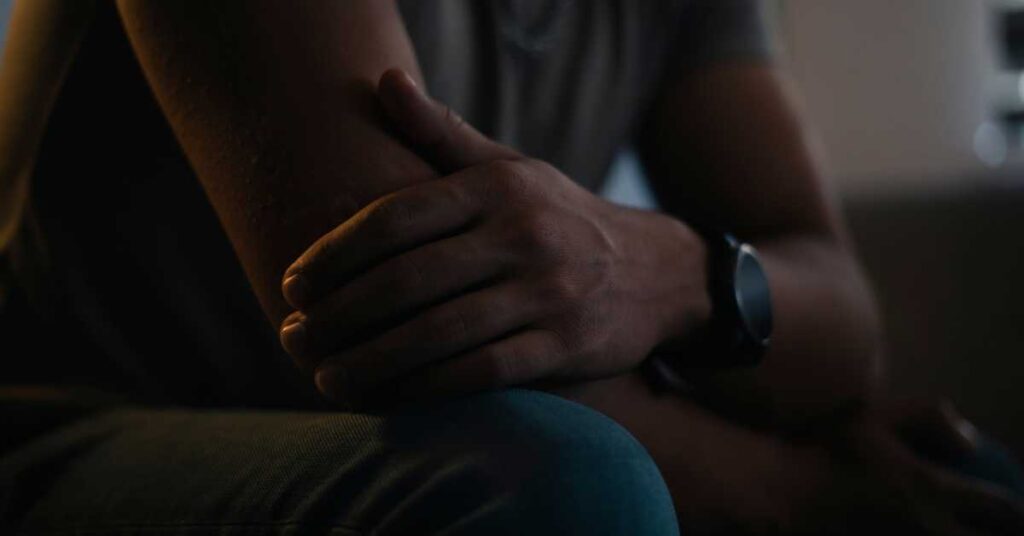You know, when a person hears the word “health,” their mind probably jumps to things like going to the gym, eating a salad, or maybe getting a check-up. But what about the stuff going on inside your head? That’s a huge part of health, and maybe we don’t talk about that enough, especially for guys. June is recognized as Men’s Mental Health Month, and it’s a chance to stop and think about the emotional well-being of the men in our lives, our fathers, brothers, friends, and anyone else who might be struggling quietly.
The importance of a month dedicated to this topic is hard to overstate. It’s a chance to shine a light on a serious, though silent, public health issue. Consider this: according to a number of sources, men are almost four times more likely to die by suicide than women. This is not a small difference. It is a striking reality that connects the idea of a dedicated month to a very real and serious problem. In a way, it’s a direct call to action.
So, When Did This All Start, Anyway?

The idea of a focused time for men’s health isn’t new. Since 1992, June has been celebrated as National Men’s Health Awareness Month. A few years later, in 1994, Kansas Senator Bob Dole introduced a bill that was passed by Congress to officially establish Men’s Health Month. The original purpose was to bring awareness to the early detection and treatment of general health conditions in men. The focus was really on physical ailments and getting guys to the doctor for checkups.
The conversation has changed since then. Over the years, the idea expanded into a full month of outreach and advocacy. And something interesting happened. Terms like “Men’s Mental Health Month” gained popularity. Even though the official name remains Men’s Health Awareness Month, the way people refer to it shows a subtle but powerful cultural shift. It points to a growing public awareness of men’s specific mental health needs.
The unofficial name has gained so much traction because it speaks directly to a critical and often unaddressed part of men’s health. The public is recognizing that the mental and emotional struggles that lead to things like depression and suicide are arguably the most pressing health crises facing men. The fact that the name of the month has naturally evolved in the public mind is evidence that open conversations and advocacy have a real impact. This change shows that the issue has moved from the sidelines to the center of the discussion.
The Problem is Real, and It’s Quiet

The numbers show that this isn’t an anecdotal problem. It’s a widespread public health issue. Nearly 20% of adult American men experienced a mental health condition over the last year. More than 6 million men in the United States experience depression every year, yet an alarming 49% of them felt more depressed than they admitted to the people in their lives.
Perhaps the most troubling data shows the gap between mental illness and its most severe outcome. While women are about twice as likely to be diagnosed with depression and anxiety, men are nearly twice as likely to die by suicide. Men account for nearly 75% of all suicides in the United States. This disparity points to a deeper issue. It’s not that men are immune to these conditions. It’s that the way they experience and show distress may be very different.
The way mental illness shows up in men can be masked by unhealthy coping behaviors. Instead of sadness or hopelessness, a man might present with irritability, aggression, or even violent behavior. They may also turn to reckless actions like dangerous driving or substance abuse. Physical symptoms such as headaches or digestive problems can also be a sign of emotional distress. This difference in symptoms is a crucial point. Standard diagnostic criteria for depression, often modeled on the way women experience the condition, may simply miss how men are suffering. The problem is not that men are less depressed, but that their depression is being misread or overlooked entirely.
This situation creates a difficult cycle. Men don’t seek help because of stigma, their symptoms manifest in less obvious ways, they go undiagnosed, and the untreated illness worsens, leading to more severe outcomes. A survey of American men showed that while a majority of them were concerned about mental health issues like stress and depression, more than half of them did not find it important to get regular health checks. This shows a clear disconnect. People are concerned about their psychological well-being, but they aren’t using the typical resources to address it. We can’t simply tell men to get help. We need to provide health and mental health services in ways that connect with them.
Why It’s So Hard to Talk About

The stigma surrounding men’s mental health is a very real barrier. It’s rooted in deeply held societal expectations and stereotypes about what it means to be masculine. From a young age, boys are often taught to be tough, stoic, and self-reliant. They’re conditioned to believe that expressing vulnerability or seeking help is a sign of weakness. This message is reinforced by media and can lead to a fear of judgment and shame.
Trying to live up to these ideals can be truly harmful. According to research, there are many masculine norms that can affect a person’s well-being. Things like “emotional control,” “self-reliance,” and “primacy of work” can lead to serious problems. When men strive for these ideals and fall short, they might struggle with workaholism, chronic stress, or suppression of their feelings. This, of course, can have serious effects on their mental and physical health.
But a person doesn’t have to go through their struggles alone. As conversations about men’s mental health month continue to expand, it’s clear that many famous men are also speaking out. The following quotes serve to challenge the old, harmful ideas and replace them with a new sense of strength.
- Quote: “Being vulnerable is not a weakness—it’s a strength.”
- Author: Dwayne “The Rock” Johnson
- Quote: “There is hope, even when your brain tells you there isn’t.”
- Author: John Green
- Quote: “I believe the biggest stigma right now with mental health is that a lot of men are afraid to talk about it.”
- Author: Michael Phelps
- Quote: “It’s okay not to be okay.”
- Author: Prince Harry
- Quote: “The only thing more exhausting than having a mental illness is pretending like you don’t.”
- Author: Unknown
For Every Man, a Different Battle

It’s also important to remember that not every man’s struggle is the same. Race, culture, and life experiences can add extra layers of difficulty. For example, men of color face a “double whammy” of societal pressure and systemic racism. Historical trauma and a lack of trust in healthcare can make them less likely to seek professional help. Instead, they may find support in informal, communal settings like barbershops or places of worship. They often find that stigma fades when they see resilience and self-care modeled by people they trust. This shows that trust and shared experience can be more important than the traditional clinical setting for many.
The challenges for military service members and veterans are also unique. According to a 2014 study, veterans have a rate of PTSD that is 15 times higher than that of civilians. They also have a rate of depression five times higher. The transition to civilian life can be especially hard, as many veterans miss the structure and purpose of military life. They may also feel isolated because civilians don’t understand their experiences. This can make it difficult for them to develop new, helpful habits. The struggles are not universal, and for help to be effective, it must be culturally competent and delivered in a way that respects their lived experiences.
It’s helpful to hear about specific experiences. Stories like that of Jonny, a young man whose world changed when his father was diagnosed with a terminal illness, show how life-altering events can affect mental well-being. Or consider Peter Gilbreth’s story of addiction and recovery. These accounts show that the challenges are different for each person, but recovery is possible for all who seek it.
A Few Thoughts on What We Can Do

Men’s mental health month isn’t just about reading statistics; it’s about taking action. For men who may be struggling, there are simple, practical steps that can make a difference. You can try doing a regular “check-in” with yourself to assess your stress levels. Find a consistent time, maybe in the morning or the evening, to pause and reflect.
Moving your body can also have a positive impact. Things like taking a walk, doing some yardwork, or just getting outside can help get your body and mind in a good place. Maintaining a balanced schedule, getting enough sleep, and eating well are also important. Remember, you don’t have to change everything at once. Small changes go a long way.
Another thing you can do is maintain your social connections. Turn off the TV, put down your phone, and spend time with people you care about. It’s also okay to initiate social plans, whether it’s seeing a concert or just grabbing dinner. If you feel overwhelmed, try taking some deep breaths or listening to a favorite song.
For people who want to help a friend or a family member, the most important step is to simply start a conversation. A simple text or phone call can make a big difference. Don’t be afraid to ask how a person is doing, or, if you are concerned, to ask directly if they are having suicidal thoughts. It’s a myth that asking about suicide will make it more likely to happen. In fact, it can save a life. Checking in regularly and offering support is a good way to show you care.
Where to Go From Here: Getting Help

When things get really tough, knowing where to go for help is important. If you or someone you know is in crisis, help is available immediately. You can call or text the 988 Suicide & Crisis Lifeline at 988. For military personnel and veterans, the Veterans Crisis Line is available 24/7 by calling 1-800-273-8255 and pressing 1.
For ongoing support, there are a number of organizations that offer resources for men. The following table lists some of them.
| Organization | What they do |
|---|---|
| Heads Up Guys | Provides free online depression self-check tools. |
| The Face It Foundation | Offers support groups, retreats, and a podcast for men recovering from depression. |
| Anxiety and Depression Association of America (ADAA) | A nonprofit organization that provides information and resources on anxiety and depression. |
| National Alliance on Mental Illness (NAMI) | Provides general mental health support, education, and specific programs for veterans and their families. |
The existence of organizations like The Face It Foundation, which offers services like support groups and a podcast, shows an understanding that a general approach to mental health may not always resonate with men. These organizations are creating “male-friendly” ways to engage with men’s health needs, which is a step in the right direction. The solution is not just about making men talk, but about providing the right venues and formats for them to do so.
Just a Final Word
Ultimately, men’s mental health month is a chance for all of us to recognize that health isn’t just about what you can see. It’s about being mindful of what’s going on inside. It’s a time to pay attention, to talk, and to act. Maybe the conversation feels a little awkward at first. Maybe it’s not something you’re used to doing. That’s fine. It’s a start.

Leave a Reply